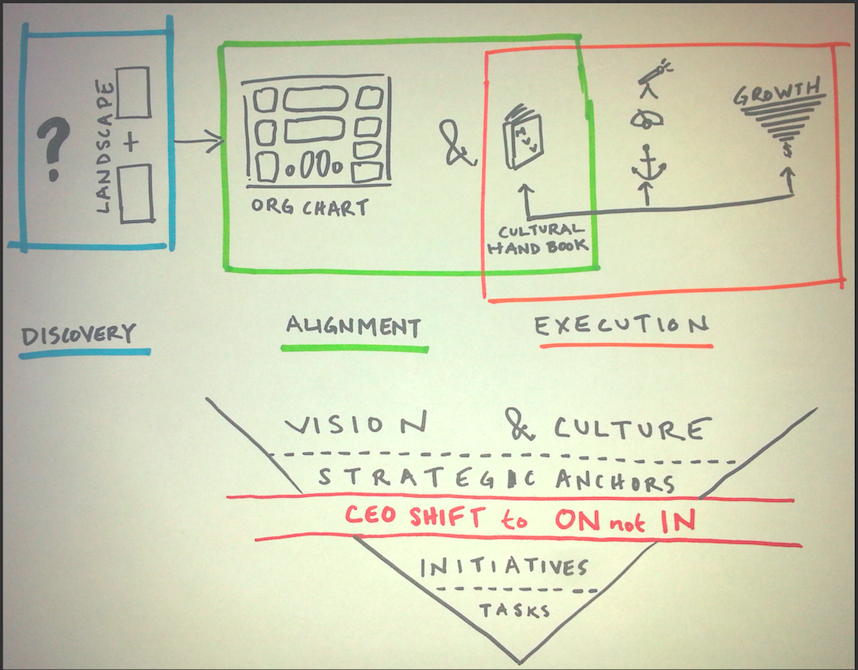It is increasingly obvious that an organization’s online presence is the new front door for many people. In 2010, according to Edison Research the Internet has become the most essential medium (from options such as television, radio and others). In fact, this research found that now more people would give up their TV for the Internet if they were forced to only have one of these. The rapid pace of our interactions moving more through the web demands greater attention from the key leadership of your organization.
This shifts holds from the research we’ve done as well. Let me give you two supporting findings:
- 27% of respondents said the church website was how they first learned about the church of those who have attended their church less than 1 year.
- 61% said the church website was somewhat to very important in their decision to attend the church from the above respondents.
Sadly, developing an online ministry strategy doesn’t seem to be as important to many church leaders. MonkDev interacts with hundreds (if not thousands) of churches and ministries every year about the web. Often these conversations can include questions like, “Should we be on Twitter?”, “Are all-Flash websites a bad idea?”, “How do you get better placed on search engines to be found?” “Should we have a large image rotator on our website?” While these questions aren’t bad per-se, too often churches have seen the web from a tactics point-of-view or an add-on tool rather than what it is, a radical paradigm shift.
What I see missing from many churches is a clear strategy for using the web. For example (and to be a bit extreme to make a point) a church that says, “We need to create a Facebook page because everyone is doing this.” This would show that your strategy is to become a copycat of other churches. Churches shouldn’t think about online tactics until they have a web strategy. Let me share a few things we communicate to help churches prepare for building a web strategy.

Principle #1 : A Web Strategy shouldn’t begin with thinking about being Online. – Being Online can be meaningless if you don’t know what you are doing or who you are. Churches we speak with often have an unspoken vision that is internal to a few key leaders, but this vision isn’t frequently communicated or thought through at a level where it drives the organization in a clear and focused direction.
Principle #2 : Ministries should align together toward the shared vision of the church. – It’s easy for churches with their variety of ministries and leaders to move from a place of ministry alignment behind the central vision of the church. Further, in larger churches there can be a level of staff and ministry buy-in to set expectations and work together on communicating toward this changed vision. 
Principle #3 : Often what is the hardest part of a thought through web strategy is the changes offline – Recently we met with a church who identified a few core goals in developing the community, discipleship, leadership training and connecting people into home groups. In the meetings it became clear no one currently owned this goal/process and it was decided they would have to hire someone. Further, many communication directors move from gatekeeper (often not intentionally this way but functionally) to consultant to release and consult ministry leaders to best use technology to achieve their ministry goals. All of this requires a rethinking of roles and responsibilities that go far deeper than building a website.
Recently we met with a church who identified a few core goals in developing the community, discipleship, leadership training and connecting people into home groups. In the meetings it became clear no one currently owned this goal/process and it was decided they would have to hire someone. Further, many communication directors move from gatekeeper (often not intentionally this way but functionally) to consultant to release and consult ministry leaders to best use technology to achieve their ministry goals. All of this requires a rethinking of roles and responsibilities that go far deeper than building a website.
MonkDev has a strategic process to help churches build a plan on how they should use the web. This process includes a Vision & Strategy Session for the leadership team to unpack what they believe God is calling them to specifically. Secondly, we meet with Stakeholders & Ministry Leaders to have the leaders communicate this and we guide the team through a educational session that includes case studies to help them see how it might look. These stakeholders then work on their own ministry visions/goals that align with the overall vision of the church. Lastly, we gather all this information and work with the communication & implementation team to translate what was discovered to the web.
In the last three weeks we’ve been on-site of three churches (AL, CA & WA) helping them translate their ministry strategy to the online environment and are booking more into January & February, so it is good to see churches understand how important this is. At MonkDev we are passionate about serving churches in this way and helping ministries use web technology for the Glory of God is part of our calling. Also check out our web solution currently used by thousands of churches called Ekklesia 360.
Learn more about our Church Web Strategy Sessions.


